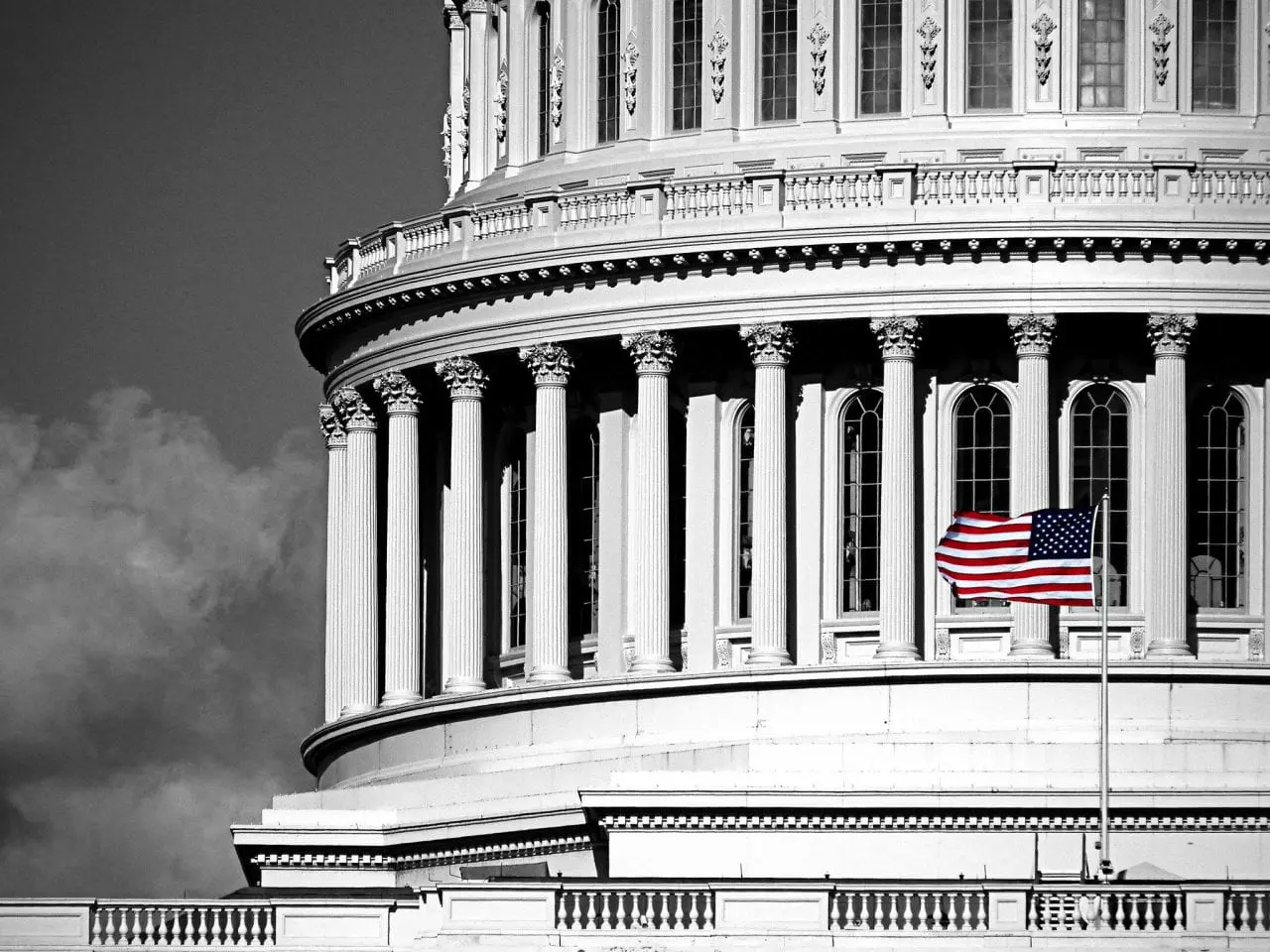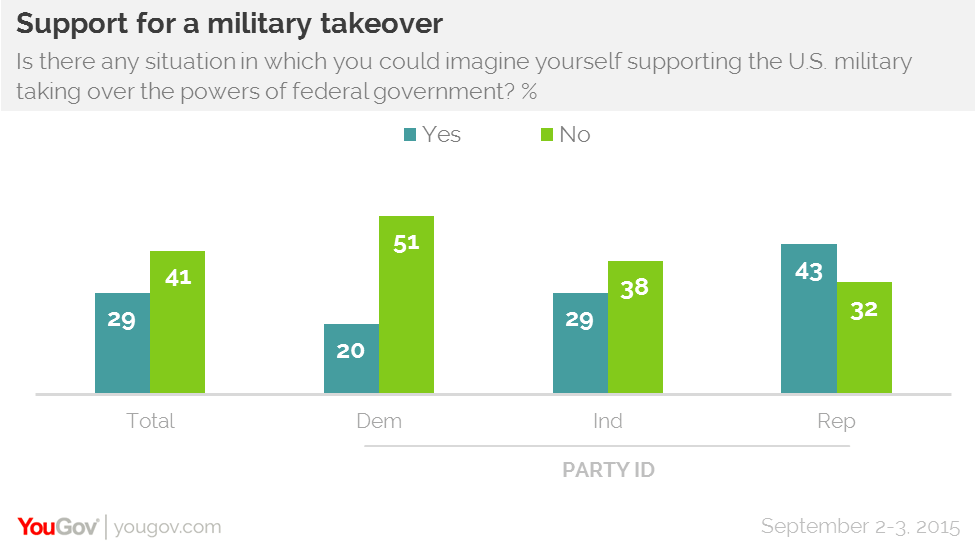Did you Know That one Third of Americans Would Support a Military Coup?

Throughout modern history we have seen several military coups (coups d'état) -- basically an illegal and sudden overthrow of the government and seizure of the state -- and even more failed attempts.
From the assassination of Julius Caesar by the Senate in 44 B.C. to Napoelean's coup of France in 1804 -- and more recent coups in Guatemala, Haiti, Algeria, Phillipines ... The list goes on (you can find a comprehensive list here). The common denominator for all of these coups is usually civil war, killings and civil unrest.
You may think that this is something happening in far-away countries, or something that can't happen in a civilized and stable country like USA -- but according to a new poll from YouGOV, 29% of Americans could imagine supporting a coupe d'état.
The poll also shows that while 43% of republicans would support a coup, only 20% of democrats and only 29% of independents would. Also, more understandably, when rephrasing the question to: “whether they would hypothetically support the military stepping in to take control from a civilian government which is beginning to violate the constitution”. 43% said yes to this, and 29% said no.
I'm not writing this to scare you -- but I think it's important, and interesting, to address this.
If you were to take away anything from this, it shouldn't be the numbers themselves. The real takeaway, is that we shouldn't take a stable government for granted, and you can't always rely on the state having your back in the long-term. Being self-reliant and not depending on others is always the way to go.
Note that this was a relatively small survey, with a thousand respondents. The Guardian, who also posted about the poll, noted that the survey was biased, which prevents proper randomization -- again making it prone to blow the numbers out of proportion when extrapolated to a larger population (like everyone living in The US).
Abraham Wyner, director of the undergraduate program in statistics at the Wharton School of the University of Pennsylvania, said that online polls were “worse than just about any other way you can put together a poll” because they were prone to selection bias, meaning proper randomization was not achieved and the sample was not representative of the population – since people can choose to participate.

Photograph by 'Deep', CC. Poll Graph via YouGov


